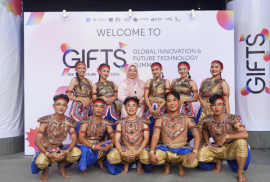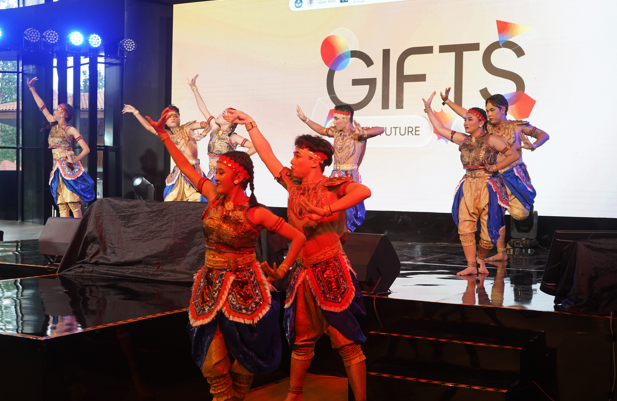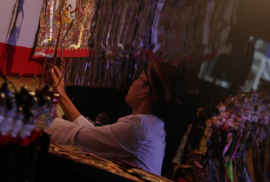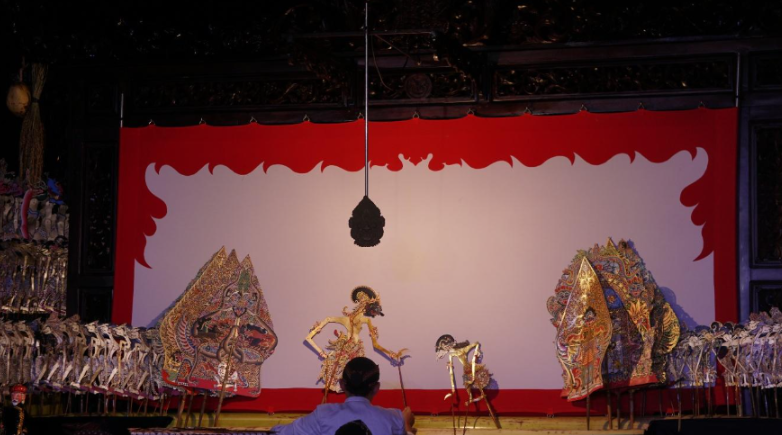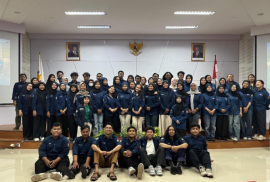Yogyakarta, 4 December 2025 — The autonomous arts body BSO Sasoebah once again showcased its creative excellence in the performing arts by delivering a captivating performance at the opening of the Global Future Innovation Technology Summit (GIFTS) 2025, held at the GIK UGM Building. On this special occasion, BSO Sasoebah presented its newest dance work titled “Lelana Jagatriya,” a performance that blends traditional aesthetics with the concept of a symbolic journey across worlds, rich with humanitarian meaning.
GIFTS 2025 is an international-scale event that opens interdisciplinary spaces for discussion, ranging from technology and innovation to creativity and global collaboration. Notably, the event was also open to the public, providing opportunities for students and the wider community to enjoy the performance and the intellectual atmosphere it offered.
BSO Sasoebah’s performance successfully drew the attention of attendees, including more than 20 distinguished guests who are strategic partners of GIK UGM from various sectors. Their presence underscored the importance of collaboration between arts, innovation, and technology in fostering creative dialogue within academic environments. In addition to invited guests, the event’s openness to the public allowed the broader community to experience the dynamic and collaborative spirit of GIFTS 2025.
The event also reflects efforts to support the Sustainable Development Goals (SDGs), particularly through its contribution to strengthening quality education and cultural preservation. In the context of the SDGs, this event demonstrates a commitment to creating inclusive learning spaces and promoting the preservation of cultural identity through performing arts. Moreover, GIFTS 2025 highlights global collaboration and innovation as part of building sustainable partnerships between educational institutions, creative communities, and professional sectors.
Through the performance of Lelana Jagatriya, BSO Sasoebah not only enlivened the opening of GIFTS 2025 but also reaffirmed the essential role of the arts in supporting sustainability, strengthening interdisciplinary dialogue, and inspiring the younger generation to continue creating.
[Public Relations of FIB UGM, Alma Syahwalani]

